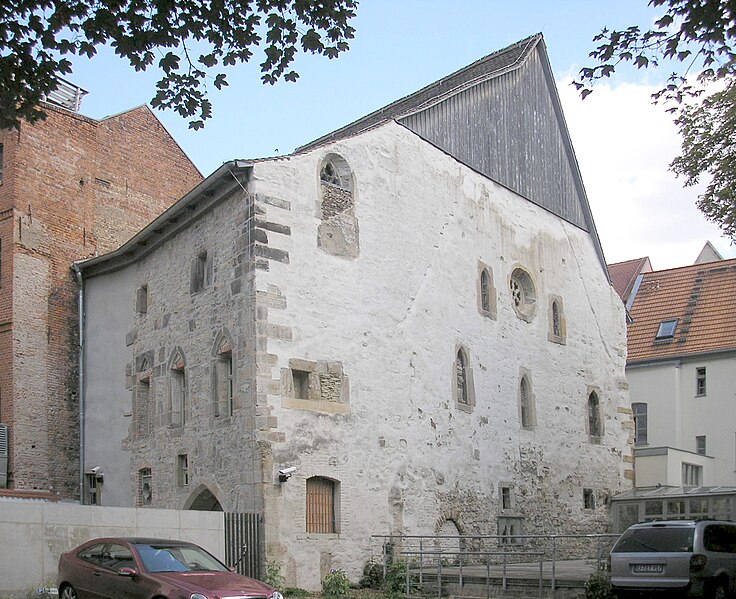
A cluster of medieval Jewish structures in Erfurt, Germany, received the prestigious World Heritage Site designation from a United Nations committee on Sunday.
UNESCO, the U.N. Educational, Scientific and Cultural Organization, also granted World Heritage status to a ruins site near Jericho in the West Bank. This move stirred controversy, as Israeli officials were displeased with UNESCO's reference to the location as in the "State of Palestine."
In the former East German city of Erfurt, the UNESCO recognition was met with jubilation. The announcement, made on the conclusion of Rosh Hashanah, was broadcast live at the local city hall, where applause resonated. Three historic buildings received this honor from the Paris-based U.N. agency: Erfurt's Old Synagogue, dating back to the late 11th century; a mikveh (ritual bath) now located beneath a newer structure; and a 13th-century stone building offering insights into medieval Jewish life in the area.
Reinhard Schramm, chairman of the Jewish regional organization for the state of Thuringia, expressed his gratitude to everyone involved in the application process and noted that his delight was tempered by concerns about the rise of nationalism and antisemitism.
"It is important for Jews to feel that they are welcome in Erfurt," he emphasized. Currently, there are approximately 650 Jews residing in the entire state of Thuringia.
The Old Synagogue's history stretches back to the 1090s, with its first stones laid during that period. A pogrom in 1349, fueled by false antisemitic accusations linking Jews to the Black Plague, resulted in the destruction of the local Jewish community. Historical records suggest that those who survived were either expelled or took their own lives. Remarkably, the synagogue's various uses over the centuries, including as a warehouse, restaurant, and dancehall, may have prevented its destruction by the Nazis.
Before Hitler's rise to power, Erfurt was home to 831 Jews, but after the war, under East German control, the Jewish population dwindled to around 120. A new synagogue was inaugurated in 1952.
In 1988, the forgotten synagogue was rediscovered by the Independent Institute for Building Research and Documentation. A decade later, the city purchased it from the owner, who had intended to establish a beer hall and brewery on the premises but never initiated renovations. In 2007, the community's ritual bath, which had served as a cellar for centuries, was finally acknowledged and preserved.
Today, the synagogue houses a museum featuring the renowned "Erfurt treasure," a collection of jewelry, coins, and other valuable items once belonging to a Jewish merchant or moneylender.
Erfurt now plans to establish a World Heritage Center near its city hall, with proposals to relocate the Jewish community's center to the new site and open a kosher restaurant.
Kerstin Pürschel, Germany's ambassador to UNESCO, hailed the decision as a significant step in honoring the shared roots of Judaism and Christianity in Germany. This recognition marks the second Jewish site in Germany to receive UNESCO protection, following the inclusion of locations in the Rhine River cities of Mainz, Worms, and Speyer, regarded as the region where Yiddish first developed.
Jericho in the West Bank, under Palestinian Authority control, is recognized as one of the world's longest continually inhabited areas. UNESCO acknowledged a spring still in use near the prehistoric ruins site, emphasizing the area's historical significance.
Israel's foreign ministry criticized UNESCO's decision, deeming it another instance of the Palestinians' manipulative use of UNESCO and the politicization of the organization. Israel, which boasts nine World Heritage sites, withdrew from UNESCO in 2019, citing the organization's alleged bias in describing Palestinian and Israeli sites. Photo by Michael Sander, Wikimedia commons.



































